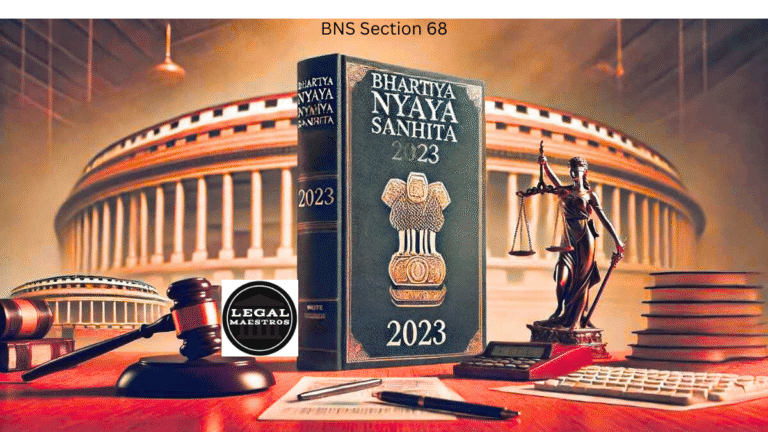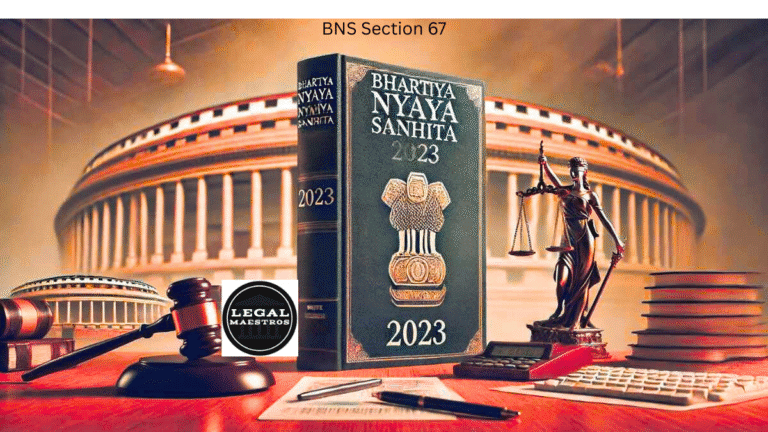
Understanding Section 30 of the Bharatiya Nyaya Sanhita, 2023: Acts Done in Good Faith Without Consent
The rules that are included by the Bharatiya Nyaya Sanhita (BNS) of 2023 acknowledge the complexity of emergency situations in which immediate action is required for the benefit of an individual, even if the individual does not provide their agreement. Specifically, Section 30 addresses situations in which actions carried out in good faith and without the permission of the person who is harmed are not considered to be offenses under certain circumstances.
The question is, what does Section 30 state?
In accordance with the provisions of Section 30, an act is not considered a criminal violation simply because it causes injury to a person, provided that the conduct is carried out in good faith for the benefit of the person in question and under conditions where:
At this point, it is not possible for the individual to provide their consent. In addition to being unable to give consent, the individual does not have a guardian or legal representative who is available to give consent in a timely manner with them.
For any queries or to publish an article or post or advertisement on our platform, do call at +91 6377460764 or email us at contact@legalmaestros.com.
For More Updates & Regular Notes Join Our Whats App Group (https://chat.whatsapp.com/DkucckgAEJbCtXwXr2yIt0) and Telegram Group ( https://t.me/legalmaestroeducators )
Nevertheless, this provision does not apply to the following:
- The intentional causing of death or efforts to cause death. * Acts that are known to probable cause death, unless they are intended to avert death or serious damage, or to cure a grievous sickness or infirmity.
- The intentional infliction of pain, unless it is done with the intention of preventing death or injury.
- The commission of any offense for which this exception would not constitute a violation. [3] [Ministry of Labour and Social Affairs]
- It is essential to keep in mind that the term “benefit” being used in this situation does not refer to a simple monetary (financial) gain.
Examples to Illustrate the Point
First example: a medical intervention in an emergency situation
An interaction takes place between Dr. Mehta, a surgeon, and Ravi, who has sustained a severe head injury and is currently unconscious. In order to save Ravi’s life, Dr. Mehta performs a critical surgical procedure without first gaining his consent. He does this because he recognizes the urgency of the situation. The activity taken by Dr. Mehta is not considered a criminal violation according to Section 30 because it was carried out in good faith for Ravi’s benefit in a circumstance in which consent could not be obtained.
For any queries or to publish an article or post or advertisement on our platform, do call at +91 6377460764 or email us at contact@legalmaestros.com.
Example 2: Actions That Save Lives in the Event of a Fire**
A is on the top level of the house with a youngster named Z when the house is on fire. As there is no time to obtain consent and people below are clutching a blanket, A drops Z from the rooftop in an attempt to save the child from the fire. Although A is aware that the fall could potentially cause harm, his intention is to save Z’s life. An activity taken by A in good faith for the benefit of Z is not deemed an infraction under Section 30. This is true even if the kid is injured or killed as a result of the conduct.
A Legal Perspective on Fairness and Integrity
The concept of “good faith” is extremely important in this setting. An act is considered to have been carried out in good faith if it is carried out with the appropriate amount of care and attention, as stated in Section 2(11) of the BNS. In order to fulfill this requirement, the one who is carrying out the action must have a genuine belief that their action is required for the good of the other person and must exercise the proper amount of prudence.
For any queries or to publish an article or post or advertisement on our platform, do call at +91 6377460764 or email us at contact@legalmaestros.com.
It is acknowledged in Section 30 of the Bharatiya Nyaya Sanhita, 2023, that in certain emergency cases, quick measures committed in good faith for the benefit of a person, without the agreement of such person, should not be considered criminal. By ensuring that persons who are acting responsibly and with the intention of providing assistance are protected under the law, this provision strikes a balance between the necessity of immediate involvement and the legal safeguards that are in place.





![Research Assistantship @ Sahibnoor Singh Sindhu, [Remote; Stipend of Rs. 7.5k; Dec 2025 & Jan 2026]: Apply by Nov 14, 2025!](https://legalmaestros.com/wp-content/uploads/2025/11/Gemini_Generated_Image_s0k4u6s0k4u6s0k4-768x707.png)
![Karanjawala & Co Hiring Freshers for Legal Counsel [Immediate Joining; Full Time Position in Delhi]: Apply Now!](https://legalmaestros.com/wp-content/uploads/2025/11/Gemini_Generated_Image_52f8mg52f8mg52f8-768x711.png)
![Part-Time Legal Associate / Legal Intern @ Juris at Work [Remote]: Apply Now!](https://legalmaestros.com/wp-content/uploads/2025/11/ChatGPT-Image-Nov-12-2025-08_08_41-PM-768x768.png)
![JOB POST: Legal Content Manager at Lawctopus [3-7 Years PQE; Salary Upto Rs. 70k; Remote]: Rolling Applications!](https://legalmaestros.com/wp-content/uploads/2025/11/ChatGPT-Image-Nov-12-2025-08_01_56-PM-768x768.png)